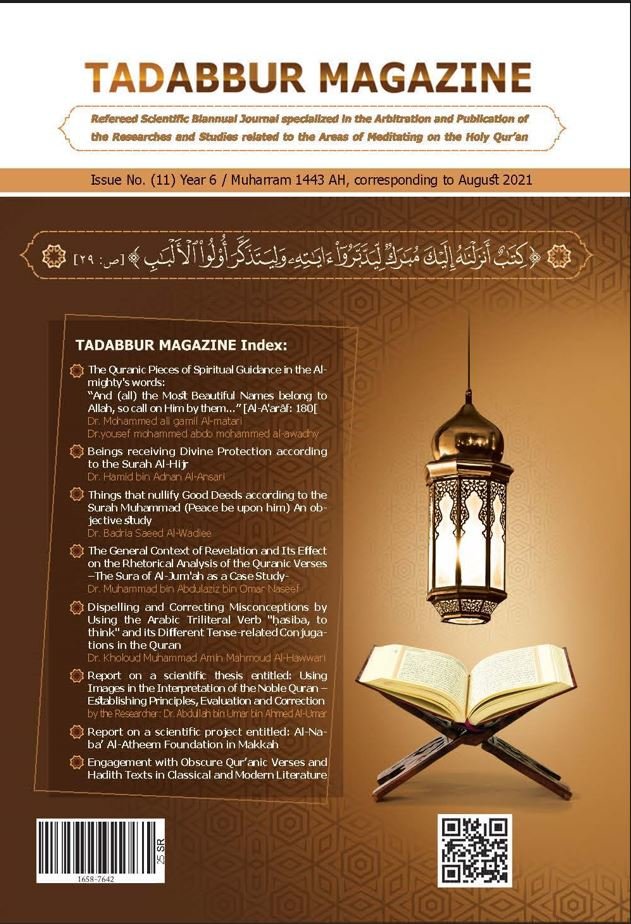Things that nullify Good Deeds according to the Sura of Muhammad (Peace be upon him) An objective study
Main Article Content
Abstract
The research addresses an objective study on the things that nullify good deeds as reflected in the Sura of Muhammad (may Allâh’s blessings and peace be upon him) and aims to identify the reasons why good deeds can be neutralized. The word “’amal” (deed) and its different derivatives occur twelve times in the Sura in question.
I relied on the deductive inductive approach in addition to studying, analysis and connection.
Main findings:
1- Allâh is completely aware of His servants’ deeds and He holds them accountable for them, be they good or bad. Whoever performs good deeds will receive a generous reward while wrongdoers will be punished.
2- Misdeeds are normalized for their perpetrators as a punishment appropriate for following their personal inclinations and their incompliance with the commands of Allâh.
3- The nullifiers of good deeds, the most serious of which is unbelief, are to be avoided.
4- Practicing Jihad is the best devotion that preserves a servant’s reward and righteous deeds.
The things that counteract the nullifiers of a believer’s good deeds are as follows:
1- Faith and obedience to Allâh and His Prophet.
2- Practicing Jihad against enemies.
3- Not to make unconditional concessions to the enemies.
Downloads
Article Details
Conference Proceedings Volume
Section

This work is licensed under a Creative Commons Attribution-NonCommercial 4.0 International License.
Indicating to the intellectual property, copyrights, and open access right:
According to the Budapest Initiative 2002; tadabbur Journal, which is issued by Khibrat Taibah For Research and Studies in Medina, provides free open access to its publications, and applies the Creative Commons license:
Attribution- Non-Commercial 4.0 International (CC BY-NC 4.0) for the works it publishes from peer-reviewed scientific research and reports, which are freely available on the Internet, and which allows any user to read, download, copy, and distribute (Convert), print, search, or create links to the full texts of the journal’s research and publications, and analyze them in an automatic manner for discovering them, sending them as software data, or using them for any other legal purpose, without financial, legal, or other technical barriers beyond those related to Internet access.
It also highlight that the only barrier to reproduction and distribution, and the only role of copyright in this field, is the necessity of granting the authors of the journal’s research and reports and the publisher the journal; Control over their works, and the right to official recognition and reference citations.





